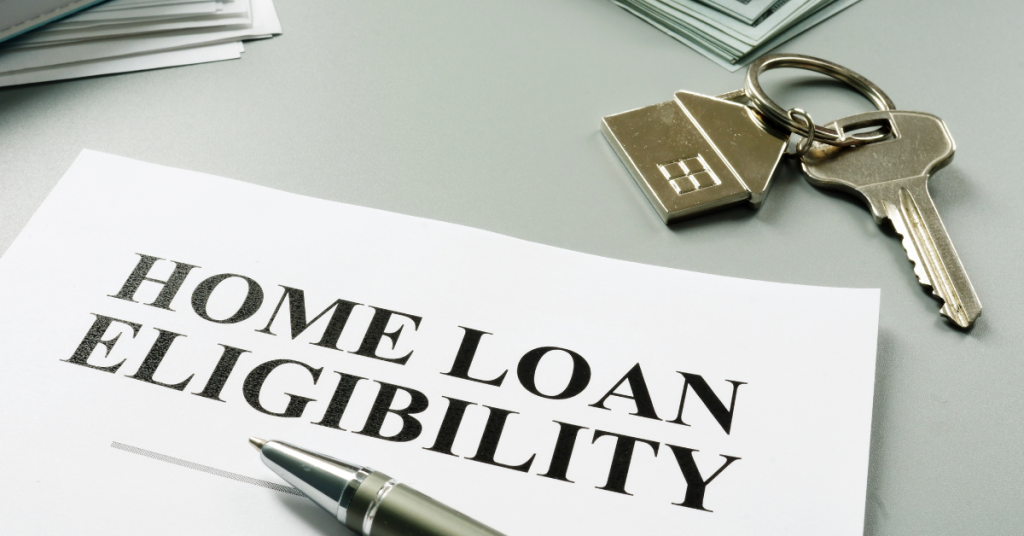Ever wondered whether you could afford the dream home you’ve had your eye on? Well, pay close attention, veterans and active-duty military members! Loan eligibility might just be the much-needed key to unlocking your path to homeownership.
This government-backed mortgage program comes brimming with perks and flexible options, potentially making home buying more attainable than you ever imagined.
Are you curious whether you qualify? It’s time to roll up your sleeves and explore this remarkable homeownership opportunity, designed specially to honor your service. Let’s dive in!
VA Loan Eligibility Requirements
Certificate of Eligibility
You want to get your hands on a VA loan, right? Step one: grab yourself a Certificate of Eligibility (COE). This is your proof of eligibility for this incredible loan program, handed out by the Department of Veterans Affairs. It also lays out your entitlement amount, that’s VA-speak for how much of your loan the VA’s got your back on.
Do you want to apply for your COE? Easy peasy, you can do it online via the VA’s eBenefits portal, send a good ol’ fashioned mail, or hit up your VA lender.
Service Requirements
Now, let’s talk about the certain amount of time you need to serve to be eligible for a VA loan. If you’re on active duty, you’re good to go once you’ve clocked in 90 continuous days. That’s just three months of service to unlock a world of fantastic benefits – sweet deal, right? And for the veterans out there, the length of service requirements for a VA will depend on whether you were enlisted during wartime or peacetime. In general, you’ll need 90 days under your belt during wartime or 181 days during peacetime.
But hey, if you spent your service time rocking it in the Selected Reserve or National Guard, you’ll qualify with 90 days of active-duty service or six creditable years. In short, there are numerous ways you can earn eligibility for a loan, and each one offers a chance for you to tap into some incredible benefits!
Eligibility for Disabled Veterans
If you’re a veteran with a service-connected disability, the VA rolls out the red carpet for you. First off, you can kiss the VA funding fee goodbye, that’s a one-time fee you’d typically see on your loan. This fee waiver knocks down your overall mortgage cost, making homeownership more within reach. And there’s more, wounded veterans could also get their hands on grants for modifying their homes, like installing wheelchair ramps.
VA Loan Entitlement
Let’s talk about loan entitlement. Think of it as the VA’s promise to your lender that they’ll cover a chunk of your mortgage if you can’t. It’s their way of giving your lender a safety net. Your entitlement is unique to you, based on your service. First-time homebuyers usually get a standard mortgage entitlement that’s about 25% of the conforming loan limit set by the Federal Housing Finance Agency.
Step-by-Step Process on How to Apply for a VA Loan Certificate of Eligibility

Alright! You’re eager to get your hands on a COE for a VA home loan, but you might be wondering how to tackle the application process. No worries, we’ve got you covered with this easy-peasy, step-by-step guide. Let’s jump right in, shall we?
1. Check Your Eligibility: Am I Worthy?
First things first, you need to make sure you’re eligible for a VA home loan. You can find details on the VA website or through other handy resources. Give it a good look-over and see if you check all the boxes for eligibility.
2. Pick Your Loan: Window Shopping, Anyone?
Next up, it’s time to decide which type of VA home loan is your perfect match. Are you leaning towards a VA direct loan or feeling the vibes of a VA-backed loan? It’s your call!
3. Gear Up: Getting Your Ducks in a Row: Before you dive into submitting your COE request, gather all the essential info and documents you’ll need, like your service history and duty status. Preparation is key, my friends!
4. Request that COE: Knocking on the VA’s Door
Now we’re cooking!
If you choose the mail route, fill out that form and send it to your regional loan center’s address (you’ll find it on the form’s last page). For those who love digital convenience, you might even score an automatic COE online. Once the VA reviews your request, they’ll let you know their decision. You can also keep tabs on your request status online.
5. Your COE Has Landed: The Golden Ticket Awaits
Hooray! You’ve gotten the green light and received your COE. Now, print that baby out and hand it over to your lender as proof of qualifying for a VA home loan.
Keep in mind, the COE application process might vary based on your unique situation, so it’s wise to double-check with the VA or your lender for any extra deets.
Types of VA Loans
VA Home Loan
Let’s start with the star of the show: the VA Home Loan. This is the biggie. It lets you, the eligible borrower, snag a primary residence without forking over a down payment, as long as the sale price doesn’t go over the appraised value. Oh, and did I mention there’s no mortgage insurance needed? Plus, the interest rates have a knack for hanging out below those of conventional loans. Pretty neat, huh?
VA Mortgage
Next up, we’ve got the VA Mortgage. This is your go-to for refinancing an existing home loan. Already own a home? You’ve got two shiny options: the VA Interest Rate Reduction Refinance Loan (IRRRL) and the VA Cash-Out Refinance Loan. The IRRRL is like a magic wand that transforms your current loan into a new one with a lower interest rate and it makes the whole process a breeze. On the flip side, the VA Cash-Out Refinance Loan lets you dip into the equity in your home and pull out cash. You can use it to settle debt, spruce up your home, or whatever you fancy.
Other Loan Options
But VA loan programs aren’t just for buying or refinancing. Nope, they’ve got more tricks up their sleeve. The program also dishes out options for adapting and renovating homes. Fancy a fixer-upper? The VA Renovation Loan lets you buy a home that needs a little TLC and wrap the costs into one neat package. And for our disabled veterans, the Specially Adapted Housing (SAH) Grant and the Special Housing Adaptation (SHA) Grant are here to help you get or modify a home to fit your specific needs.
VA Loans Benefits

Mortgage Advantages
Veterans Affairs Home Loans are like the golden goose of mortgages. They have competitive interest rates, require no down payment or mortgage insurance, and they’re not as picky about credit scores. Plus, they usually have lower closing costs than conventional loans. And the cherry on top? No prepayment penalty. That’s right, you can make extra payments or pay off the loan early without any pesky fees breathing down your neck.
VA Loan Benefits for Disabled Veterans
And let’s not forget our disabled veterans. You can get some extra perks when it comes to VA mortgage. For starters, the VA funding fee is usually off the table if you have a service-connected disability. But wait, there’s more. Handicapped veterans can also qualify for grants aimed at increasing accessibility and modifying homes to meet your specific needs. Now that’s what I call taking care of our own!
How to Qualify for a VA Loan
In addition to obtaining your COE, your lender will check some boxes to make sure you’ve got what it takes to handle a mortgage. Here’s the lowdown on what you can expect:
- Steady Income: Lenders like to play it safe, so they’ll want to check that you’ve got a reliable source of dough to make those mortgage payments (plus cover any other fun expenses that pop up along the way).
- Reasonable Credit Score: While the VA isn’t going to put a hard number on your credit score, having a decent one (usually around the 600 mark) will have your loan application humming a happy tune.
- Debt-to-Income Ratio (DTI): This fancy term simply means figuring out what percentage of your monthly income is covering your debts. Most loan lenders will tip their hat to a DTI of 41% or lower, so they know you can ride the mortgage wave without wiping out.
- VA Appraisal: You didn’t think you could just gallop into the sunset with any old property, did you? The VA needs to give the green light on the home’s condition and value before you seal the deal.
Tackle these core mortgage requirements, and you’ll be off to the races in the blink of an eye.
Credit Score Requirements for a VA Home Loan

Hey, did you know that the VA doesn’t actually set a minimum credit score requirement for VA loan eligibility? Yep, that’s right! Uncle Sam keeps things flexible when it comes to credit scores. However, before you start celebrating, it’s important to know that lenders aren’t quite as laid back as the VA. You see, these financial institutions are the ones ultimately granting the loans, and they’ve got their own rules when it comes to credit scores.
So, what’s the magic number? While there isn’t a one-size-fits-all answer, although the VA loan lenders have a ballpark figure of around 600 as their preferred mortgage credit score for a VA loan. Now, this isn’t carved in stone, and you might come across some fluctuation in the credit requirements from one lender to another. But having a credit score of 600 or higher is a good benchmark to aim for if you want to sail through the VA loan process with ease.
Don’t Forget the Surviving Spouses
When we talk about VA loan eligibility and all its fantastic perks, it’s essential not to forget about the unsung heroes, the surviving spouses of deceased veterans. You heard that right, surviving spouses can also access the transformative power of the VA loan program. But how do they go about it? Simple! They will need their own COE, just like their veteran or active-duty counterpart.
Obtaining a COE enables a surviving spouse to show proof of their loan eligibility and get those much-deserved benefits rolling. To qualify for a va loan, the surviving spouse typically must not have remarried and must be the unmarried spouse of a veteran who passed away while serving or as a result of a service-connected injury. Spouses of service members listed as missing in action (MIA) or prisoners of war (POW) for at least 90 days also qualify.
This table is your one-stop-shop for everything you need to know. From eligibility to application, loan types, and juicy benefits, we’ve got you covered.
| Category | Details |
|---|---|
| Eligibility | Active-duty military members and veterans (meet the minimum service requirements). Also available to surviving spouses of deceased veterans. |
| COE | Necessary to prove eligibility. Can be obtained online via the VA’s eBenefits portal, by mail, or through a VA-approved lender. |
| Service Requirements | For active-duty members, 90 continuous days of service. For veterans, 90 days during wartime or 181 days during peacetime. For members of the Selected Reserve or National Guard, 90 days of active-duty service or six creditable years. |
| Disabled Veterans | Service-connected injured veterans are exempt from the VA funding fee and may qualify for home modification grants. |
| Loan Types | VA Home Loan, VA Mortgage (IRRRL and Cash-Out Refinance), VA Renovation Loan, and SAH/SHA Grants for veterans. |
| Benefits | Competitive interest rates, no down payment or mortgage insurance, flexible credit requirements, lower closing costs, no prepayment penalty, VA funding fee waived for veterans with disabilities. |
| Application Process | Obtain COE, choose loan type, submit required documentation (including proof of income), go through underwriting process, close on the home. |
| Credit Score Requirement | Though VA doesn’t set a minimum score, lenders usually look for a score around 600. |
| Surviving Spouses | Unmarried spouses of veterans who passed away while serving or from a service-connected injury, and spouses of service members listed as MIA or POW for at least 90 days, can also qualify for a loan. |
VA Mortgage Eligibility: Your Ultimate Game-Changer

If you’ve served or are serving in our military, VA mortgage eligibility is like your golden ticket to the land of homeownership. Think about it, no down payment, interest rates that would make your credit card blush, and special nods for our wounded veterans. These mortgages aren’t just mortgages; they’re our country’s ‘Thank you’ note for your service.
By now, you’ve got the lowdown on loan eligibility and entitlement. It’s like you’ve been given a map to the treasure chest that is your dream home. So go on, grab that opportunity, and take that next step towards your very own slice of the American dream.
Frequently Asked Questions
How many times can I take advantage of this sweet VA loan benefit?
Well, fear not, my friend! The good news is that there’s no limit to how many times you can use your VA loan benefit. You can even have more than one loan at a time in certain situations. Just remember, after you pay off a loan, you can have your entitlement restored and use it again for another home purchase. Just make sure you’re financially ready to take on a new mortgage before you jump back in.
What’s the required down payment for a VA loan?
Get ready to do a happy dance because, in most cases, there is no down payment requirement for a VA loan! That’s right, you can finance 100% of the purchase price, which is an enormous advantage for veterans and active-duty military members. It’s time to bid farewell to the stress of saving up money for a down payment and say hello to the life-changing opportunity offered by VA loans. Let’s make those homeownership dreams come true!
What’s an ‘eligible veteran’?
An eligible veteran is a former U.S. military service member who checks off certain criteria, qualifying for VA benefits like loans, healthcare, and more. This includes active duty in the Army, Navy, Air Force, Marine Corps, Coast Guard, and even some Reserves or National Guard service. Other factors like length of service and character of discharge matter, too. criteria and requirements vary by benefit, so keep that in mind.
Is there an ‘easy’ disability to claim for the VA?
Nope, no “easy” button here. Each VA disability claim is unique, based on your situation, medical evidence, and how your disability relates to your service. Common conditions claimed include tinnitus, musculoskeletal injuries, hearing loss, PTSD, and TBIs. The key to a successful claim is strong medical documentation and proof that your disability is service-connected. Working with a Veteran Services Organization (VSO) can make the process smoother.






